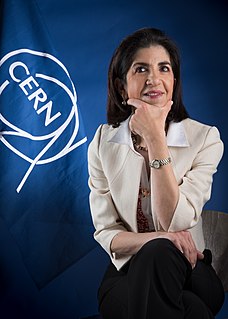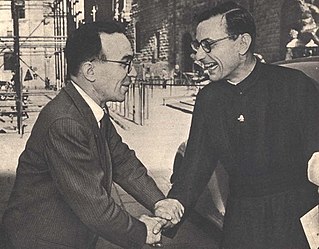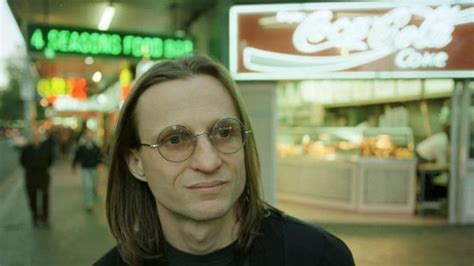A Quote by Sean M. Carroll
All the stuff we've ever seen in the laboratory, all the kinds of particles and matter and energy, that only makes up 5 percent of our universe.
Related Quotes
Mathematics is not only real, but it is the only reality. That is that entire universe is made of matter, obviously. And matter is made of particles. It's made of electrons and neutrons and protons. So the entire universe is made out of particles. Now what are the particles made out of They're not made out of anything. The only thing you can say about the reality of an electron is to cite its mathematical properties. So there's a sense in which matter has completely dissolved and what is left is just a mathematical structure.
In the far, far future, essentially all matter will have returned to energy. But because of the enormous expansion of space, this energy will be spread so thinly that it will hardly ever convert back to even the lightest particles of matter. Instead, a faint mist of light will fall for eternity through an ever colder and quieter cosmos.
We've known for a long time that the universe is expanding. But about 15 years ago, my colleagues and I discovered that it is expanding faster and faster. That is, the universe is accelerating, and that was not expected, but it is now attributed to this mysterious stuff called dark energy which seems to make up about 70 percent of the universe.
...the basic stuff of the universe, at its core, is looking like a kind of pure energy that is malleable to human intention and expectation in a way that defies our old mechanistic model of the universe--as though our expectation itself causes our energy to flow out into the world and affect other energy systems.
When we look at the universe, what we see by eye or with our telescopes is only five percent of the universe. The rest, 95 percent is dark. Dark meaning, first of all, not visible to our instrument. Second, dark also indicates our ignorance. We don't know what's the composition of this part of the universe.
Through experiments over the past few decades physicists have discovered matter to be completely mutable into other particles or energy and vice-versa and on a subatomic level, matter does not exist with certainty in definite places, but rather shows 'tendencies' to exist. Quantum physics is beginning to realise that the Universe appears to be a dynamic web of interconnected and inseparable energy patterns. If the universe is indeed composed of such a web, there is logically no such thing as a part. This implies we are not separated parts of a whole but rather we are the Whole.
It is seen that both matter and radiation possess a remarkable duality of character, as they sometimes exhibit the properties of waves, at other times those of particles. Now, it is obvious that a thing cannot be a form of wave motion and composed of particles at the same time - the two concepts are too different.
I got fascinated by the idea that our universe itself is comprised mostly of dark matter and dark energy. Things that we can't perceive at all, and we've only discovered that relatively recently. So it's almost as if our universe is the foam on the ocean of things that we can't see, or know, or perceive, and yet we feel the affects of those things right and left.
We have simply arrived too late in the history of the universe to see this primordial simplicity easily... But although the symmetries are hidden from us, we can sense that they are latent in nature, governing everything about us. That's the most exciting idea I know: that nature is much simpler than it looks. Nothing makes me more hopeful that our generation of human beings may actually hold the key to the universe in our hands - that perhaps in our lifetimes we may be able to tell why all of what we see in this immense universe of galaxies and particles is logically inevitable.
In some ways, the great danger for this commodified universe is our boredom with it ... There is this sort of dialectic that you could tease out, that even in this overdeveloped late-capitalist world, that boredom was still this kind of critical energy that you could work on and try to theorize and then act on, to find other kinds of belonging, other kinds of desire, other kinds of life.



































